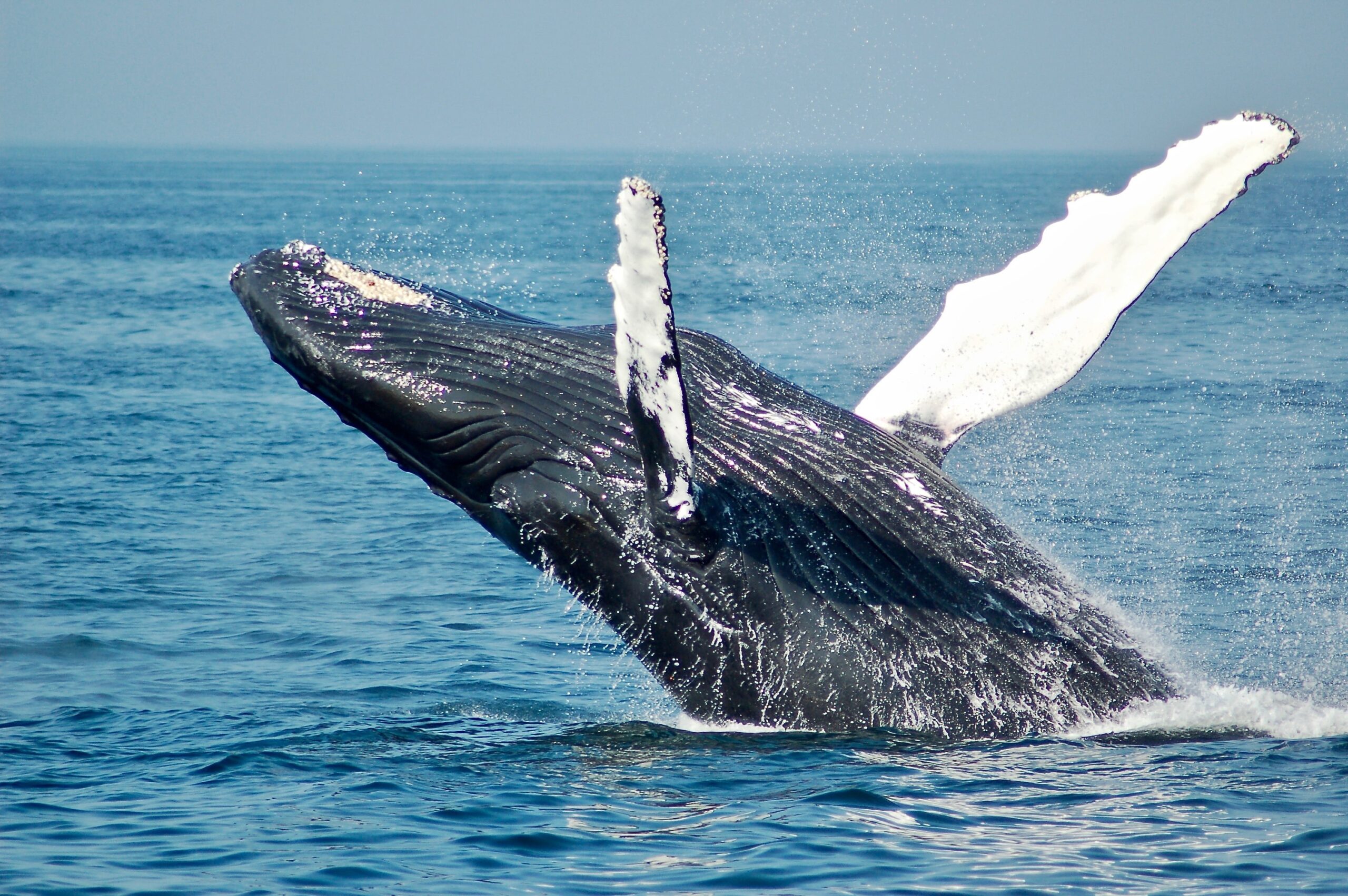Sea turtles, whales, and other marine wildlife are at risk of becoming entangled in commercial fishing gear off the west coast of the United States, with numbers increasing in recent years. To combat this, the Oregon Department of Fish and Wildlife (ODFW) recently developed a Draft Conservation Plan outlining how the state will reduce entanglements of marine wildlife in the commercial Dungeness crab fishery in Oregon waters.
Entanglements in thick ropes connected to heavy commercial Dungeness crab traps injure and kill whales and sea turtles. The ropes cut into the animals’ flesh, sap their strength and lead to drowning. Each entanglement of a humpback whale, blue whale or leatherback sea turtle violates the federal Endangered Species Act (ESA).
To combat the problem of entanglement, the state is seeking a federal permit via the ESA. This permit would allow the state to make management actions—such as fishery closures—if the limits on the number of protected species becoming entangled is exceeded.
While the work of the ODFW to reduce entanglement and risk is commendable, more work needs to be done. Turtle Island Restoration Network, alongside other organizations, submitted a letter to the ODFW highlighting their concerns and suggestions for revising the Draft Conservation Plan.
Among the suggestions and concerns TIRN submitted are:
- Reduce the requested level of take to include consideration of coastwide cumulative impacts and unobserved entanglements and mortalities.
- Adjust the duration of the incidental take permit (ITP) and ensure tri-state coordination in implementing and modifying regulations.
- Add detail on how management decisions will be made and how input from all stakeholders will be considered.
- Ensure current regulatory measures remain in place until fully evaluated and additional measures are enacted.
- Evaluate the impact of entanglements to ESA distinct population segments in addition to Marine Mammal Protection Act (MMPA) stock of marine mammals.
- Strengthen conservation measures to reduce risk during early and late season periods when whales and sea turtles are present off Oregon in high relative concentrations.
- Include additional precautionary measures and emergency action alternatives to reduce risk when take limits are approached or reached.
- Incentivize the testing and approval of pop-up gear for use in times and areas otherwise closed to the fishery.
- Consider additional rules to reduce risk to gray whales and evaluate impacts to highly endangered species that may be present (Southern Resident orcas and North Pacific right whales).
- Strengthen and add detail to the monitoring plan.
TIRN supports ODFW’s proactive effort to reduce the risk and harm that Oregon crab gear poses to marine wildlife, and supports the goal of having both healthy fisheries and a thriving ecosystem. The suggestions and concerns highlighted in the letter submitted to the ODFW will help make the conservation plan stronger and more lasting for our planet.
To read the letter in its entirety, click here.




